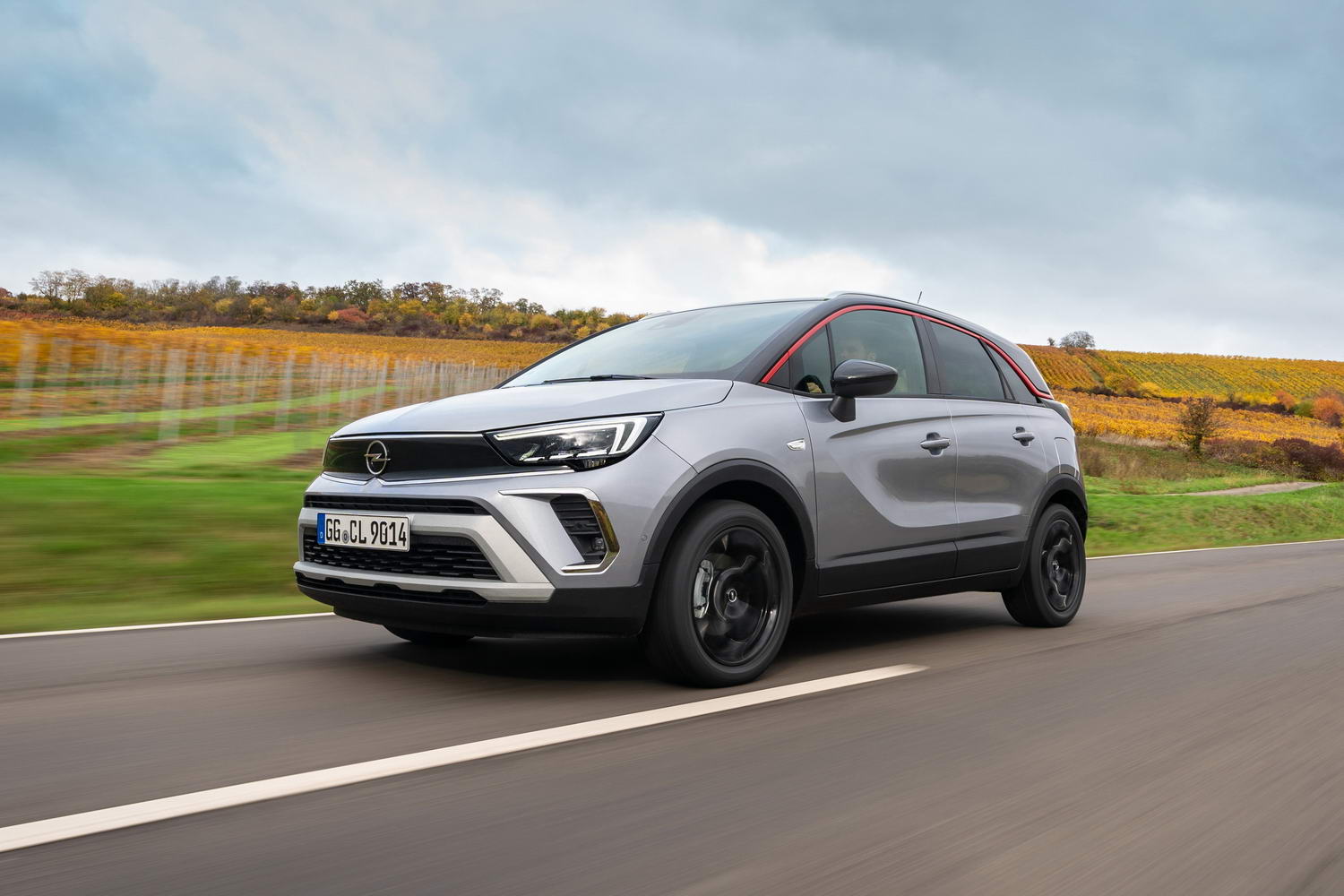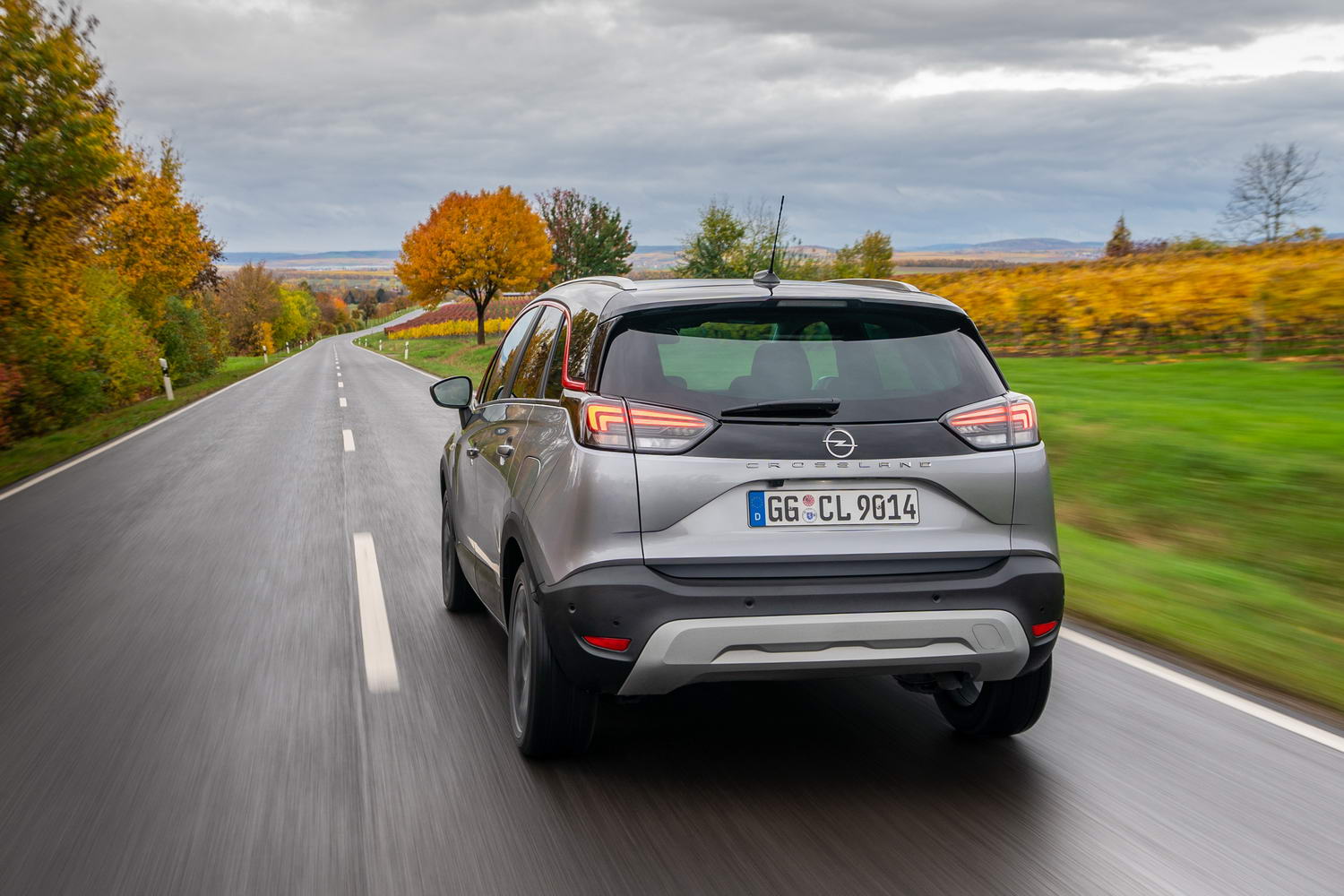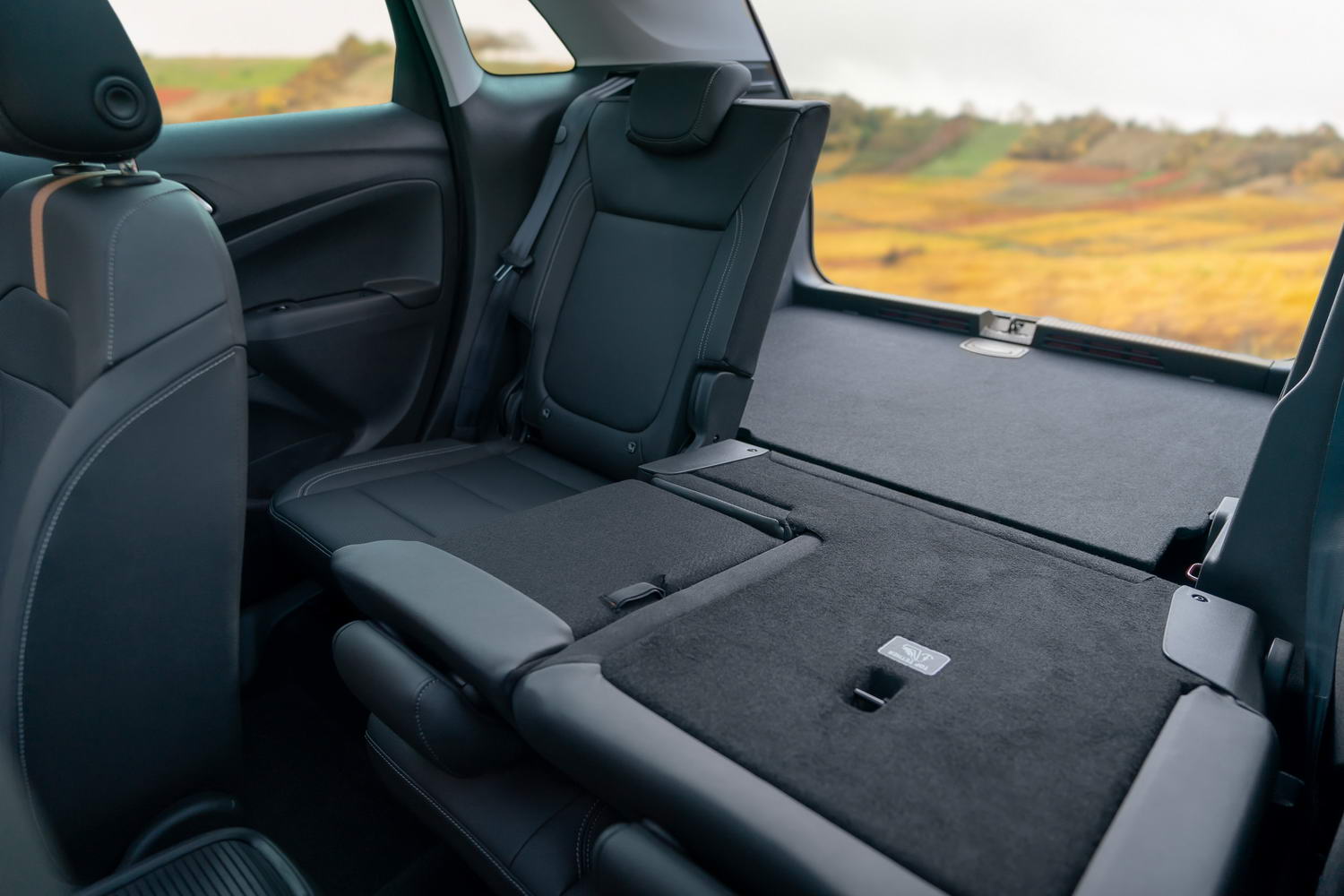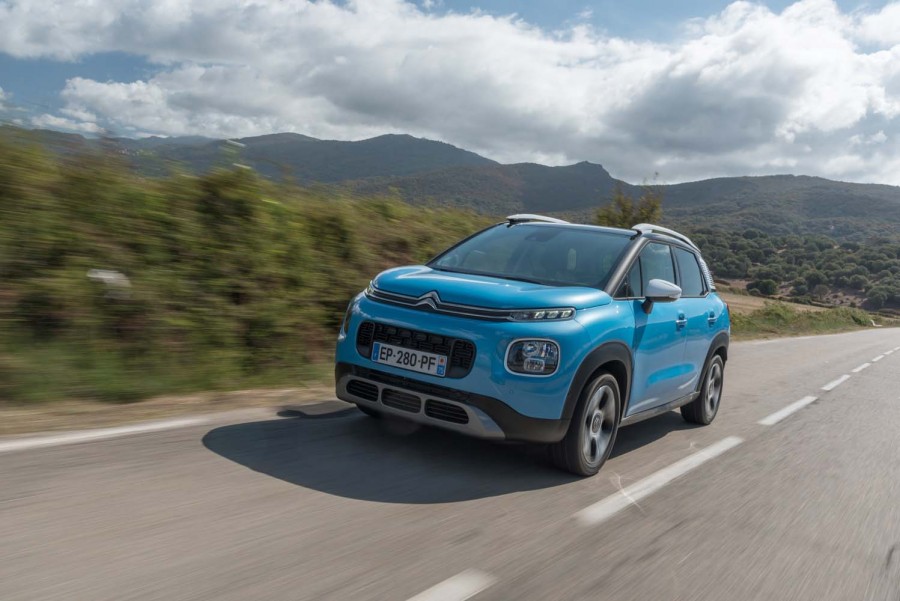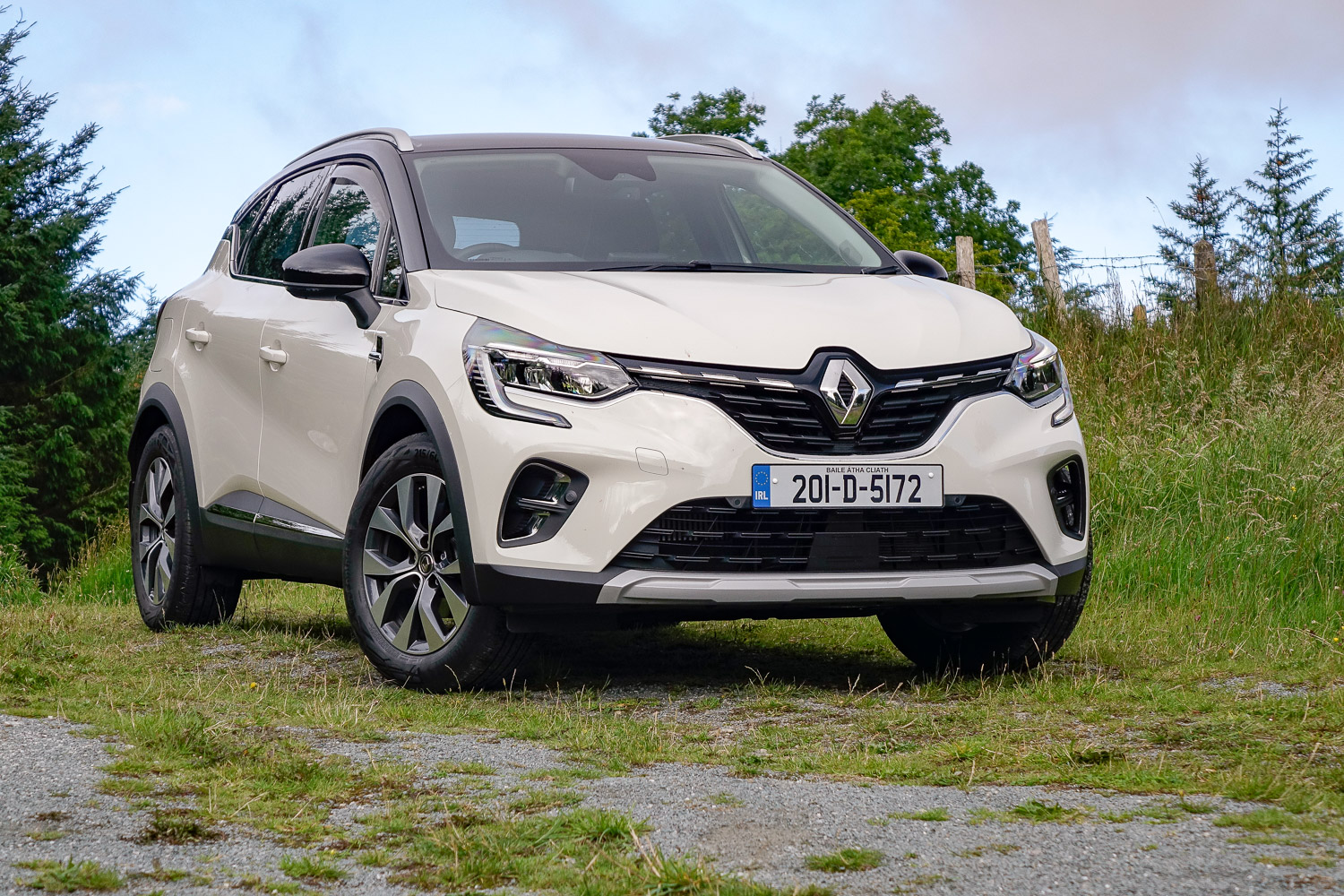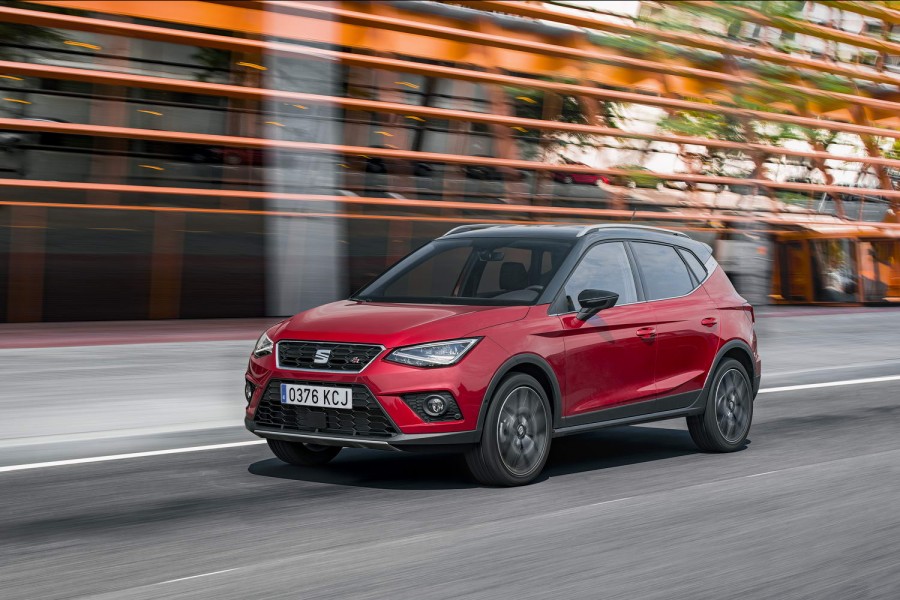The styling of this updated Opel Crossland taps into the massive demand for anything with a hint of SUV about it, but in reality, this remains more of a practical compact MPV at heart.
In the metal
In its previous guise, known as the Opel Crossland X, this car had SUV notions by way of that 'X' in its name and with the usual black plastic cladding around its lower regions. But with Opel now offering a stronger SUV line-up, led by the superb Mokka, the Crossland ditches its X, yet doubles down on the looks with more robust treatment to either end.
The bumpers now incorporate a design that adds a sense of width, although its overall dimensions are unchanged. From SRi specification there's a silver metallic look for the skid plate. The more significant update to the Crossland's aesthetic is that it gets the new corporate 'Vizor' design that melds the grille and headlights into one panel. It looks far more attractive and distinctive than before and ties the Crossland in with the Mokka. A contrasting roof colour is also available on most versions.
Interior space is where the Crossland trumps its sibling. The combination of its layout and the tall roof makes it seem very roomy. Other than some flashes of colour across the dashboard and through the upholstery, little has changed with the interior design. Opel offers leather trim on its highest trim grade. A seven-inch touchscreen appears in all versions and can run Android Auto and Apple CarPlay.
The rear doors open to a generous angle that benefits access, while headroom and legroom are where this model delivers. Furthermore, the ability to slide the rear seat bench by up to 150 millimetres to provide either more leg space or boost boot volume is a further boon. Even at its smallest, the boot measures 410 litres, and it can be increased to an excellent 520 litres. Tipping the rear seats down bumps that cargo volume up to 1,255 litres. It provides a more spacious interior than the trendier Mokka in every aspect.
Driving it
Opel sticks to a sensible line-up of engines for the Crossland, with only petrol and diesel offerings. The latter is a 110hp 1.5-litre unit that scores well on the fuel economy stakes and is cheaper to tax by €20 per annum. However, it does also carry a higher purchase price, so unless you're going to be making quite lengthy journeys regularly, it's best to stick to the petrol offering.
That starts with the 83hp 1.2-litre three-cylinder engine we're driving here. This naturally aspirated motor is modest with its power delivery, so its 0-100km/h time of 14.5 seconds is a moot point. It performs reasonably well in most typical urban situations that owners are likely to find themselves in. Other positives include a raised driving position and good visibility and ergonomics. Some may find the gear shifter set a touch low, but there is a fair amount of adjustability for the seat and steering wheel.
The non-turbo engine manages better than the numbers suggest. However, with a full complement of passengers and luggage, it begins to struggle, so do consider the more powerful 130hp version if that's more your typical use or you tend to encounter hillier terrain on a daily basis. The five-speed manual gearbox of the 83hp engine works fine, but its gearing does mean you tend to have to work it a bit more to get the best from the engine, and it feels like it could do with a sixth gear on the motorway once up to speed.
What you get for your money
There are three specification grades available in the Opel Crossland, comprising SC, SRi and Elite. Opel is reasonably generous with the standard equipment on the SC version, as it's mostly the cosmetic trappings that are excluded, such as the bi-tone exterior colour and more vibrant interior upholstery.
All versions get the seven-inch touchscreen with smartphone integration, LED daytime running lights and 60/40 folding rear seats, although only the top Elite model gets the sliding function as standard. You'll need to choose mid-level SRi to get items like 16-inch alloy wheels, LED front fog lights, parking sensors and a reversing camera, along with rear privacy glass.
You will have to go for the top-tier Elite version if you want an automatic, as Opel doesn't offer that transmission in the lower grades. Even with some of the options boxes ticked, the Crossland remains a decent value proposition, especially when you consider the space available inside.
Summary
While the Opel Crossland doesn't drive with the same refinement as the Mokka, or have as much kerbside appeal, it undercuts it by around €500 across the board. The greater differentiator is that it nails the practical elements very well, providing above-average amounts of space and storage for the segment.

